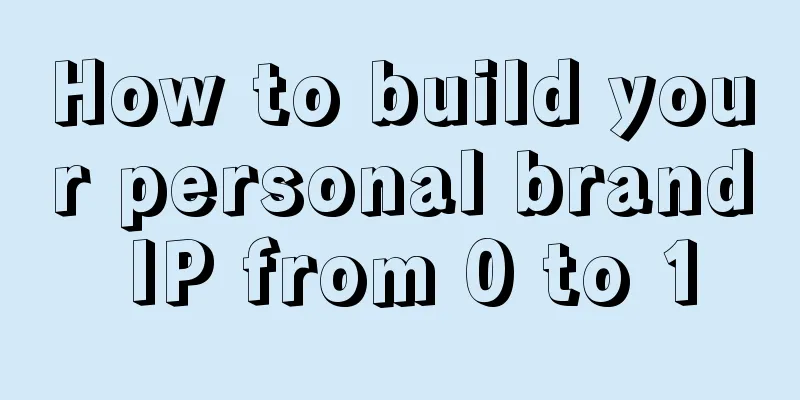Year-end review and outlook | 2023 digital marketing keywords

It's already December. As the head of digital marketing for a Fortune 500 B2B company, as well as a media person and marketing industry observer, I would like to review the core marketing phenomena in 2022 to help major marketers clear the fog and see the real world, while also seeing the trends of 2023+ clearly, so as to better find certainty amid uncertainty in the marketing world. 1. From private domain to omni-domain marketing, creating a closed loop of omni-domain marketing has become a new engine of growthThe essence of private domain operation is not to send coupons to groups or to establish a persona in the circle of friends. The essence of private domain is to face consumers directly (DTC direct to customer), to build closer relationships with consumers and improve user experience through more direct and friendly digital channels such as communities and circles of friends. I have seen some companies that started out by focusing on sales GMV and providing private domain services for the purpose of harvesting consumers in the short term. They did not do well in the long term. Their GMV may reach 100 million or even 1 billion in one year, but what about 3 years later or 5 years later? A truly strong company is not about how many hundreds of millions of revenue it has in 3 or 5 years, but about being able to cross cycles, break through the curse of competition, build its own core competitiveness and moat, and occupy a place in the market for a long time. Since last year, many Internet giants such as Tencent, Alibaba, and ByteDance have been tirelessly emphasizing the concept of omni-channel. From the perspective of the brand, I believe that omni-channel marketing will be the mainstream marketing in the next five years. Omni-channel does not mean omni-channel, but more from the perspective of consumers, creating a 360-degree comprehensive consumer experience, using integrated data to better understand consumers, serve consumers, and deliver core values. This is a closed loop from the perspective of the entire external domain. From the perspective of the enterprise, the entire closed loop means using consumer data to better empower the development and iteration of internal products, speed up decision-making, promote internal efficient collaboration, improve operational and management efficiency, and serve consumers in a more agile and flexible manner. Omni-channel marketing refers to a long-term marketing mindset that is based on the real needs of customers, comprehensively solves user pain points, provides users with real value, wins high-quality customer relationships and customer trust, and thus establishes a sustainable business model. Long-termism and consumer experience are the keywords of omni-channel marketing, and omni-channel marketing will also become a new engine for corporate growth. 2. Use creativity and technology to achieve a dynamic balance between art, technology, sensibility and rationalityThere is no doubt that 10 years ago, marketing activities focused on the creation and delivery of advertising creativity and content. Because of the two-way promotion of population traffic dividend and industry dividend, the entire marketing and advertising industry also enjoyed the dividends unique to the times. Whether it is 4A advertising companies, brand owners, or entrepreneurs who dare to fight and are good at seizing opportunities, digital marketing practitioners have all got a piece of the pie. There is no shortage of friends around me who have achieved financial freedom because their own companies have been acquired. This is an opportunity given by the times. But where should we go next? With the disappearance of traffic dividends, the competition for traffic is becoming increasingly fierce. At the same time, advertisers are faced with the urgent problem of improving "marketing effectiveness". I am afraid that creativity alone is not enough to meet the needs of brands. With the vigorous development of new technological forces such as 5G, artificial intelligence, metaverse, blockchain, etc., the support of technology has enabled marketing to improve efficiency and effectiveness by leaps and bounds. I see that some small and beautiful companies with their own unique advantages that produce high-end creative advertisements and short video advertisements rich in connotation are still alive and well. On the other hand, marketing technology companies that provide standardized products such as marketing automation software, tools, data middle platforms, etc. are also thriving, and have received financing several times, becoming the new force in the digital marketing industry and active on the marketing stage. In the era of artificial intelligence, marketing will never give up the pursuit of beauty and innovation, while embracing the latest technology. Marketing achieves a perfect balance between the pursuit of artistic beauty and the development and application of the latest technology. 3. The “person-to-person” era has arrived, and social media is playing a greater role in promoting sales growthOn the one hand, from the perspective of the platform’s positioning, whether it is Douyin’s “interest e-commerce” or Kuaishou’s “trust e-commerce”, the essence is the same. It is hoped that in addition to meeting users’ daily social and entertainment needs, social media will take on a greater role in “bringing goods”, understand users through massive user data, and push accurate, high-quality content that is likely to arouse their interest, and attach exactly the goods you need. Consumers pay without a clear purpose of consumption, and everything happens so naturally. It not only wins sales but also gains consumer trust. It seems to be the most perfect business model. Social platforms attract traffic and then generate real-time transactions, that is, social e-commerce is a product of this era that fully conforms to the "essence of marketing." On another level, the interactive relationship between brands and individuals is also quietly changing. The trend has shifted from a brand communicating to countless people to a brand having one-on-one conversations with consumers like a living person. Personalized marketing has become the mainstream, and the ability to customize and deliver products and services to unique individual consumers has become the key. In terms of communication methods, more and more brands are building brand IP and founder IP, highlighting their unique positioning with a distinctive image, capturing the minds of users, and ultimately achieving the goal of brand premium. Brands, platforms, KOL anchors, internet celebrities, consumers, and individual business owners, no one is a loser under this business model, but content is ultimately just content, and the essence of business is: "transaction." Marketing is always about relationships, but relationships alone are not enough. In the end, you still have to make money. Therefore, the biggest challenge is to focus on how to produce high-quality content around consumers, how content creates transactions, and when and to what extent it can be monetized. This is different for each brand and needs to be adapted to local conditions and the times. This is also the focus that the entire marketing industry needs to think deeply about, work hard on, and continuously improve. 4. The digital marketing industry has truly felt the many restrictions brought about by laws, regulations and policies this year, but it is still a blue ocean for development.I will not go into details about the specific terms of the two "magic weapons" of data protection, the "Personal Information Protection Law" and the "Measures for the Security Assessment of Data Cross-Border Transfer". In general, the former has made further strict protections for personal privacy. The impact on the digital marketing industry is that the way of reaching customers is restricted, which indirectly leads to a reduction in the breadth of reach and the ROI of marketing effectiveness. That is to say, on the one hand, marketers may need to pay a higher price to acquire customers. In order to improve the return on investment of marketing, marketers need to spend more marketing budget. On the other hand, more importantly, as long as consumers do not agree, no matter how much budget is spent, it will not be able to reach the high-quality consumers that brands want to reach. Digital marketing is affected in both breadth and efficiency. The latter sets a threshold for data outflow, which has a significant impact on two types of companies. One is multinational companies doing business in China, which must start looking for local marketing technology solutions to replace foreign marketing platforms such as Marketo, Salesforce and other companies whose servers are not located in the country; the other type is overseas companies. Regardless of whether they are going overseas or focusing on domestic business, in the context of globalization, companies face severe privacy and data compliance pressures. Despite this, the digital marketing industry is vigorously at the forefront of innovation. It always has a more sensitive nose, goes straight to the essence of business, and dares to innovate first. Digital marketing has always been the biggest breakthrough for enterprises to carry out digital transformation and upgrade business models, and the prospects are still bright. In summary, I think the keywords for digital marketing in 2023 are: omni-channel marketing, big data (improving data quality, making good use of data and data governance are the key), technological innovation and application, and personalized content as a service. Author: Zhu Jingyu Source: WeChat official account "Jade Digital Marketing (ID: Jade_Digital)" |
<<: 6 ways to monetize your book list number
>>: Can the popular ChatGPT help self-media people write articles? We tried it for you
Recommend
Top-tier "Snow King" fans-attracting gameplay
Mixue Bingcheng is a well-known brand, but how did...
How to log in to shein cross-border e-commerce? How about shein cross-border e-commerce?
As the wave of digitalization sweeps the world, cr...
Anthropic investors share their latest thoughts on vertical AI implementation
With the widespread application of AI technology i...
Hema feels like it's back on track
This article deeply analyzes the strategic adjustm...
Can Amazon individual sellers send FBA products? What should I pay attention to?
There are many people doing cross-border e-commerc...
How to ship Gmarket from South Korea to China? Where to transfer logistics from South Korea to China?
More and more people are choosing to look for more...
Is Amazon Black Friday cheaper? How can merchants increase Amazon Black Friday sales?
Everyone knows about the discounts on Double Eleve...
What are the consequences of Amazon limiting traffic? How to deal with it?
No matter which platform you open a store on, whet...
Xiaohongshu local life is coming? Don’t worry! You may be scammed!
As Xiaohongshu gradually expands its layout in the...
6 popular article templates on Xiaohongshu|Just follow them [Industry templates V1.0]
How to quickly create an account on Xiaohongshu an...
How to set the base currency of Shopee? How to operate Shopee?
Friends who are engaged in cross-border e-commerce...
What should I do if a Shopee customer gives me a 1-star negative review? How can I modify the negative review?
Domestic merchants who run stores on Shopee will a...
This cooking variety show has a good copywriting
This article starts from a cooking variety show &q...
E-commerce is deserted, but offline is bustling: Why is Xiaohongshu's monetization fragmented?
This article starts with the shopping experience o...
Marketing experts are all masters of psychology
When purchasing enterprise services, sales and pro...







![Phoenix Legend plays father and daughter, Ele.me plays with the name of noodle shop, Hisense focuses on nostalgia [Case Excavator]](/upload/images/67e6f4dd33439.webp)

